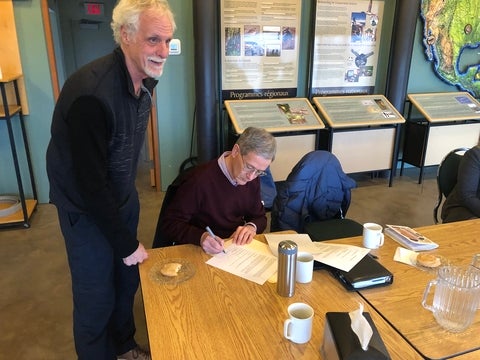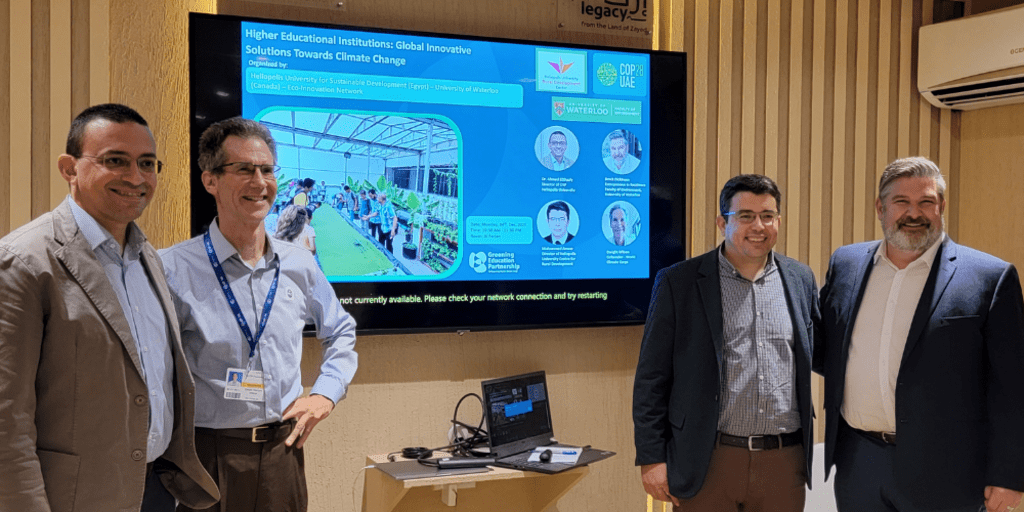A new collaboration will facilitate conservation efforts at Long Point biosphere
Estimated reading time: 1:10
Bordering Lake Erie and extending to all of Norfolk County, the Long Point Biosphere is home to the world’s longest freshwater sand spit formation and a host of other unique natural settings. To explore collaboration in education, public outreach, and research on sustainability, conservation, and the protection of biodiversity, the School of Environment, Resources and Sustainability (SERS) and The Long Point Biosphere Region Foundation have signed a letter of intent setting out a framework to pursue new projects together.
“The Long Point biosphere has nationally important concentrations of biodiversity, high levels of species at risk, and an exceptional agro-ecosystem,” said Derek Armitage, professor in the Faculty of Environment. “The partnership creates many research and teaching opportunities for SERS students and faculty and aligns with our commitment to community-engaged and applied research to help address pressing biodiversity, climate and water challenges.”
Under the agreement, the two parties will develop projects to address issues such as road ecology in student research. They will also work together to inform high school students in Norfolk County of its programs and courses featuring unique skills development and impactful field work.
Part of the University of Waterloo Faculty of Environment, the School of Environment, Resources and Sustainability is a distinct academic body recognized for its commitment to transdisciplinary teaching, learning, and research to protect, restore, and transform social and ecological systems.

Simon Courtenay, director at the School of Environment, Resources and Sustainability signing the letter of understanding with Dick Bourgeois-Doyle, member of the LPBR board of directors.

